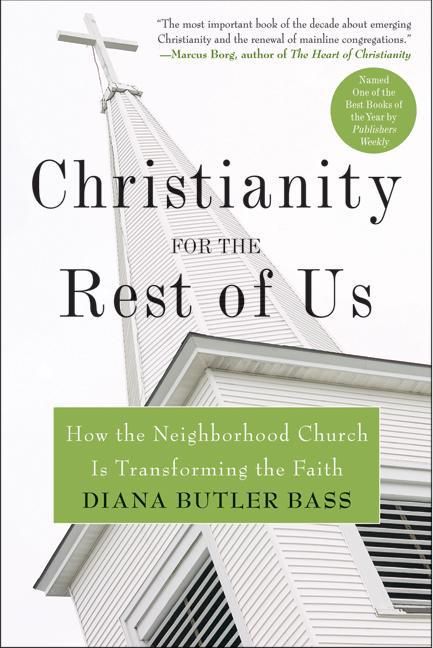Blog 1 went through chapter 11; today I'd planned to pick up on 12 through the end, but for this Saturday noon I'm actually blogging just a few more general thoughts.

Link to the book again: Christianity for the Rest of Us: How the Neighborhood Church Is Transforming the Faith, by Diana Butler Bass.
Previously I'd said this book gives me so much hope. Why? I blogged how Chapter five, "Finding Home," is about returnees, exiles, immigrants, converts and villagers, and how I love the emphasis on pilgrims on a pilgrimage. In many ways I can fit myself into all those categories, at least to some extent. Two quotes form the footer to my testimony blog, this far by faith; the first from the gospel hymn by that title:
We've come this far by faith, leaning on the Lord;Coupled with a quote from the poem "Cantares," by Antonio Machado:
trusting in God's holy Word, God's never failed us yet.
Oh, we can't turn back, we've come this far by faith.
We've come this far by faith.
Caminante, no hay camino; se hace camino al andar.This book gives me hope because it makes me realize there are churches, maybe local to my current street address, that would welcome me and let me participate as fully as I feel called to do without my needing to return to some form of authorized ministry. There are churches that recognize and support the uncertainties of the pilgrim way!
Traveler, there is no road; the way is made by walking.
Rowland Croucher of John Mark ministries quotes Kenneth Leach,
The essential difference between orthodox Christianity and the various heretical systems is that orthodoxy is rooted in paradox. ... true faith can only grow and mature if it includes the elements of paradox and creative doubt. Hence the insistence of orthodoxy that God cannot be known by the mind, but is known in the obscurity of faith...Exactly my position!
Reading through the earlier chapter, it struck me that these churches all did liturgy, devotion and service as they felt called and led, rather than necessarily in a way most typical of others in their denominations or, more broadly, traditions. However, you need to remember whatever "we" (the same as "us") do in the mainline is the Western Church's historical praxis, however its expression may be tweaked. It's those "others" who have changed worship, witness and political action to reflect something quite else.
Every so often I'll spend a little time on the websites of three churches in Cambridge, Massachusetts, imagining them as places and communities that would welcome me. A few months ago an acquaintance looked at some of my graphic design and said, "People should be exploiting you!" Exactly what I thought might be the case; exactly what I long to and for a while need to have happen. I know how greedy I am to learn about others and to learn from them, and it completely boggles my mind and mystifies me that so many people have considered me a threat rather than a gift.
That's all for today; after I read the RevGals' intro to the book and other reflections about it, I'll blog again next week.

No comments:
Post a Comment
thanks for visiting—peace and hope to all of us!